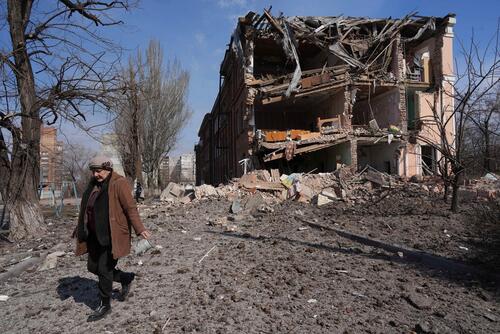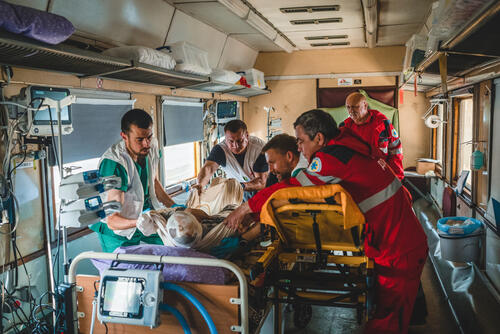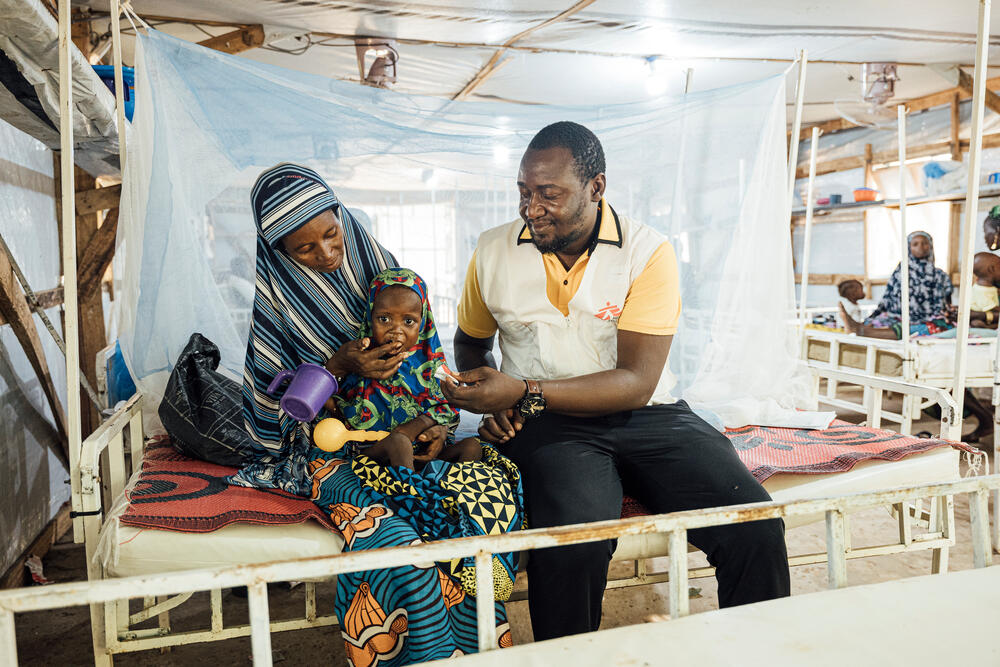Treating malnutrition in Niger: "We're using all our heart, energy and skill"
Two-year-old Edriss Haruna is severely malnourished and is struggling with a high fever.
In his home country of Niger, there are frequent food shortages that lead to children developing malnutrition – a life-threatening condition that needs urgent treatment.
There are currently more than 232 million children across the world in a situation similar to Edriss.
Conflict cripples healthcare systems and can often lead to malnutrition

Thankfully his mother Harira Mohamed is able to take him to the Médecins Sans Frontières / Doctors Without Borders (MSF) hospital in east Niger, where paediatrician Dr Faïza Ouedraogo and her team provide him with medical care.
Full commitment
In MSF's intensive care unit, Edriss receives therapeutic nutrition through a feeding tube. His high fever and severe diarrhoea are also being treated. Harira does not leave his side.
"It's not easy to work every day with children who are in need. It often affects us very much," says Dr Faïza.
"We're doing what we can, using all our heart, energy and skill to save him."
Take a tour of an MSF hospital treating malnutrition in Madarounfa, Niger
Saving lives
In Niger, our teams are treating people for malnutrition in three locations: in Diffa in the east and in Magaria and Madarounfa in the south of the country. The patients are mostly children between two and five years old.
Edriss is recovering slowly but steadily under the watchful eye of Dr Faïza. After 10 days he can leave the intensive care unit and afterward get used to solid food again.
"It looks good for him, soon he will be able to return home," says Dr Faïza.
"It's always very touching to see how a child gets well again – that’s what comforts us and motivates us anew every day."
Hospital treatment for malnutrition typically lasts two to 12 days. Patients then continue their treatment on an outpatient basis for another six to eight weeks – usually in a health centre a little closer to where they are living.
A crisis that returns every year
Malnutrition is a recurring crisis here in Niger. The reasons for this are complex: the increasing drought in the Sahel is making agriculture difficult.
The spread of desert combined with population growth means that receding fertile land will need to support more and more people.
In addition, extreme weather events are occurring with increasing frequency and repeatedly destroying harvests.
Seculation on the food market also means that food is becoming scarce or simply too expensive.
And the violence in the region is also a cause of malnutrition: people are fleeing armed groups such as Boko Haram or the so-called Islamic State, or no longer dare to till their fields because of the major risk of being attacked or kidnapped.
Last but not least, the fact that international aid is directed towards supposedly more acute crises also plays a role.

MSF Conflict Appeal
Conflict cripples healthcare systems and can often lead to malnutrition
MSF and malnutrition
Around 45 percent of all deaths in young children are linked to malnutrition.
We believe that ready-to-use therapeutic food (RUTF) is the most effective way to treat malnutrition. RUTFs include all the nutrients a child needs during its development and helps reverse deficiencies and gain weight.
Where malnutrition is likely to become severe, we take a preventative approach by distributing supplementary RUTF to at-risk children.
